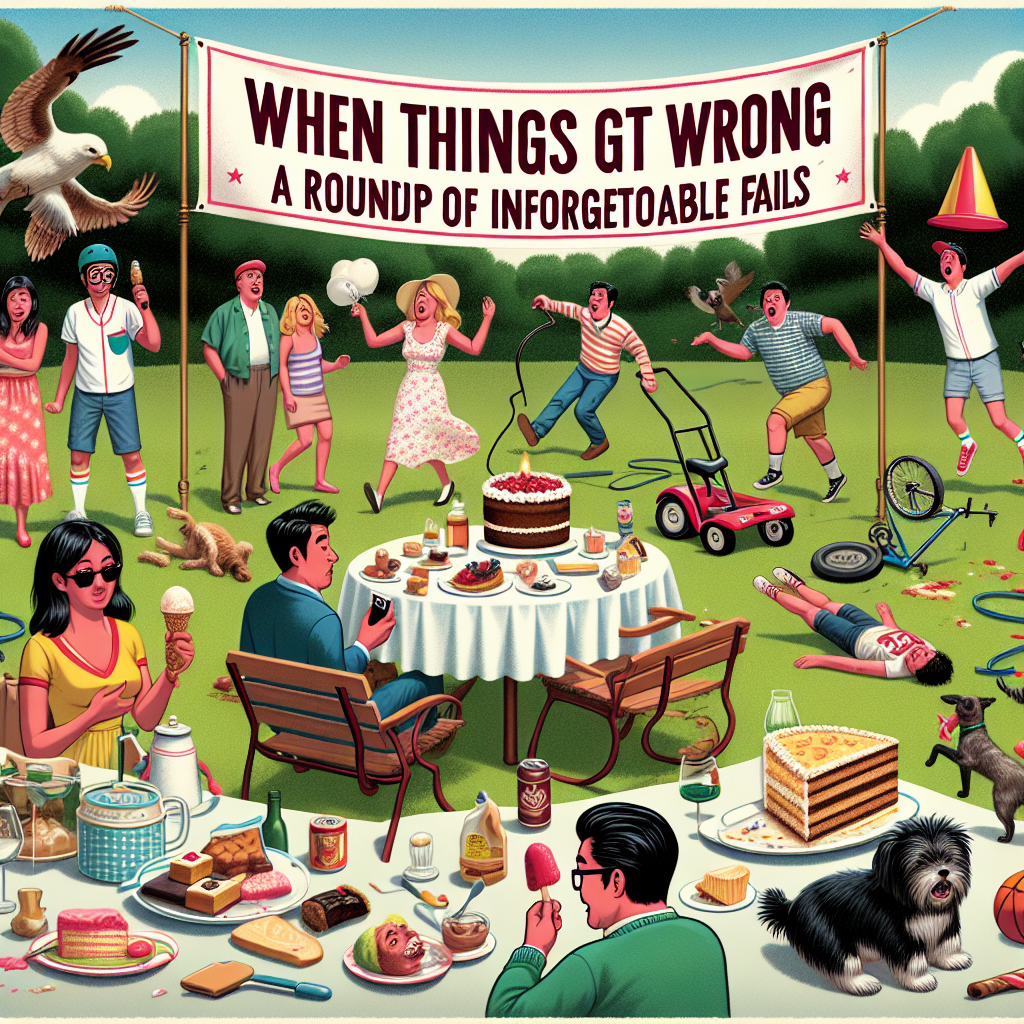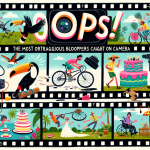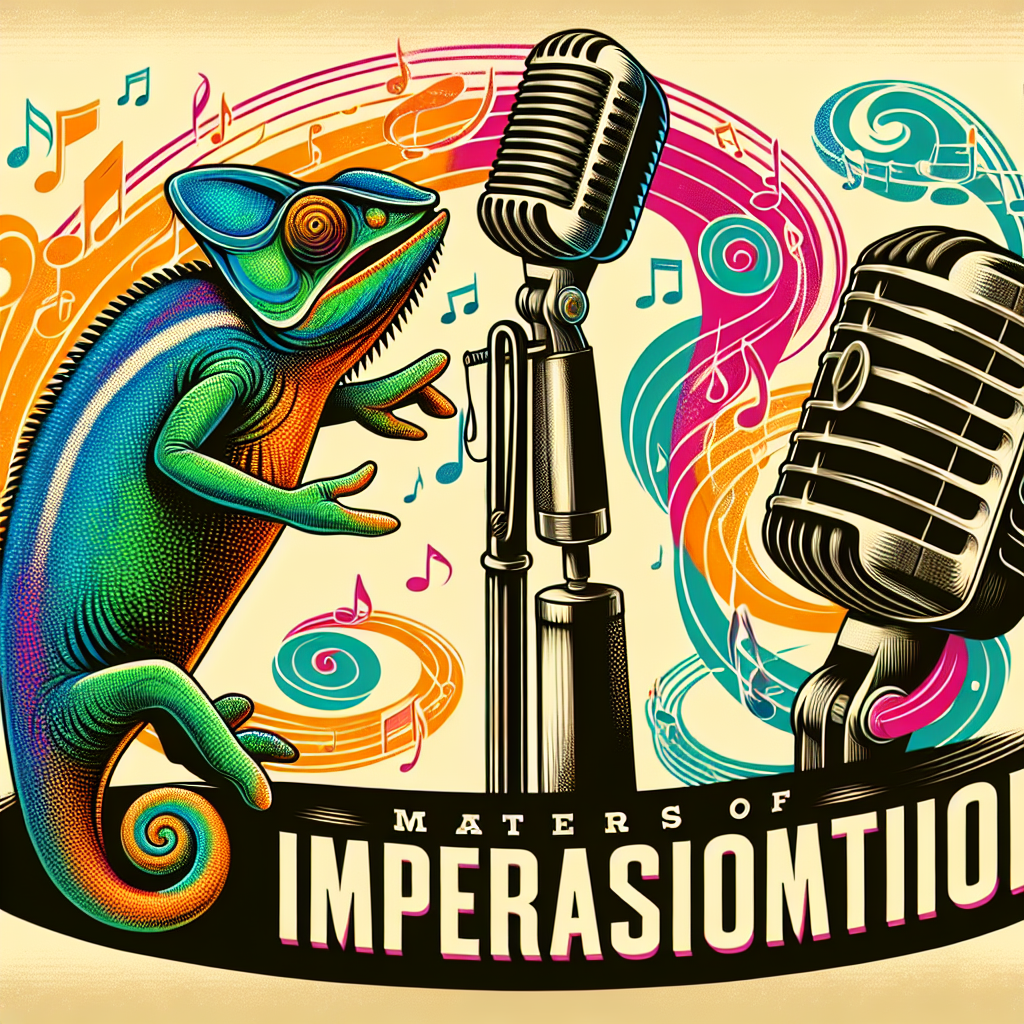When Things Go Wrong: A Roundup of Unforgettable Fails!

Table of Contents
- Understanding the Nature of Failures
- Types of Failures
- Why Learning from Failures is Crucial
- Unforgettable Fails: Case Studies
- 1. New Coke: A Marketing Catastrophe
- Key Takeaways
- 2. Blockbuster: Ignoring Market Trends
- Key Takeaways
- 3. Blackberry: The Rise and Fall of a Giant
- Key Takeaways
- 4. Pepsi: "Live For Now" Controversy
- Key Takeaways
- Lessons Learned from Failure
- Embrace Customer Feedback
- Foster a Culture of Innovation
- Maintain Financial Vigilance
- Plan for Crisis Management
- Conclusion
In the world of business, marketing, and entrepreneurship, missteps are often just around the corner. While failures can be disheartening, they also provide invaluable lessons, paving the way for future successes. This article explores some unforgettable fails across various industries, what went wrong, and what can be learned from these experiences.
Understanding the Nature of Failures
Failure is an inevitable part of any venture. According to a report from Harvard Business Review, approximately 75% of startups do not succeed. However, understanding why these failures happen can help businesses strategize better and navigate challenges more effectively.
Types of Failures
When discussing business failures, several types can be highlighted:
- Product Failures: When a product doesn’t meet consumer expectations.
- Marketing Failures: Poorly executed marketing campaigns that miss their target audience.
- Management Failures: Ineffective leadership leading to disorganization or inefficiency.
- Financial Failures: Mismanagement of funds, affecting the company’s liquidity and sustainability.
Why Learning from Failures is Crucial
Learning from failures is pivotal for growth. Not only does it provide insight into what went wrong, but it also encourages resilience and adaptability. As reported by Forbes, entrepreneurs who embrace their failures often develop a more robust business model and a deeper understanding of their market.
Unforgettable Fails: Case Studies
1. New Coke: A Marketing Catastrophe
In 1985, Coca-Cola introduced "New Coke," a reformulation of its classic beverage. This drastic move was intended to combat declining market share against Pepsi. However, the backlash from loyal customers was overwhelming.
Key Takeaways
- Customer Attachment: Consumers often develop emotional attachments to brands. Ignoring this connection can lead to backlash.
- Market Testing: Conducting thorough market testing with actual consumers can provide insights that prevent costly missteps.
2. Blockbuster: Ignoring Market Trends
Blockbuster was once a giant in the video rental industry. However, its refusal to adapt to digital streaming technology led to its downfall. As TechCrunch notes, the company failed to see the potential in streaming services, allowing competitors like Netflix to thrive.
Key Takeaways
- Adaptability: Businesses must remain agile and ready to pivot based on market trends.
- Innovation: Continuous innovation is essential; resting on past successes can lead to obsolescence.
3. Blackberry: The Rise and Fall of a Giant
Blackberry was once synonymous with smartphones, dominating the market due to its innovative keyboard design and secure messaging service. However, the company failed to respond to the touch-screen smartphone trend led by Apple’s iPhone, resulting in a drastic decline in market share.
Key Takeaways
- Innovation Cycle: Regular assessment of current technology trends is vital.
- User Experience: Focusing on user experience should be a priority to meet changing customer needs.
4. Pepsi: "Live For Now" Controversy
Pepsi faced criticism for its 2017 advertisement featuring Kendall Jenner. The ad trivialized social justice movements, leading to public outrage and swift backlash.
Key Takeaways
- Cultural Sensitivity: Brands must approach current social issues with care and respect.
- Diverse Perspectives: Involving diverse teams in marketing can prevent insensitivity and miscommunication.
Lessons Learned from Failure
While the examples above illustrate notable failures, they also offer valuable lessons that can be applied to prevent similar issues in the future.
Embrace Customer Feedback
Listening to your customers is crucial. Regular surveys, focus groups, and feedback mechanisms can provide insights into consumer expectations and values. By valuing customer feedback, businesses can adapt and align their products or services with market demands.
Foster a Culture of Innovation
Encouraging creativity and risk-taking within an organization can lead to groundbreaking solutions. A company culture that rewards experimentation can lead to innovation and resilience, allowing businesses to thrive in a competitive landscape.
Maintain Financial Vigilance
Frequent financial reviews ensure that a company remains on a stable path. Appropriately managing resources and planning for contingencies can safeguard against financial instability.
Plan for Crisis Management
Developing a crisis management plan prepares a business for unexpected challenges. By outlining steps and protocols to address potential issues, businesses can respond swiftly and effectively, mitigating damage.
Conclusion
Failures are not the end; rather, they are learning opportunities that can guide future success. By analyzing unforgettable fails across industries, businesses can glean insights that sharpen their strategies and foster resilience. Remember, every mistake can ultimately lead to a valuable lesson if approached with the right mindset.
For more insights on business strategies and marketing, consider checking out our article on Winning Marketing Strategies for Entrepreneurs.
This comprehensive examination of failures serves as a reminder that in the world of business, perseverance and adaptability are key. Embracing these lessons can turn potential setbacks into stepping stones toward future success.
Latest Posts
You Might Also Like

Lorem ipsum dolor sit amet, consectetur adipiscing elit. Ut elit tellus, luctus nec ullamcorper mattis, pulvinar dapibus leo.
TOP NEWS
Copyright © 2025 FunnyShowStreaming.site | All rights reserved.



















Comments are off for this post.